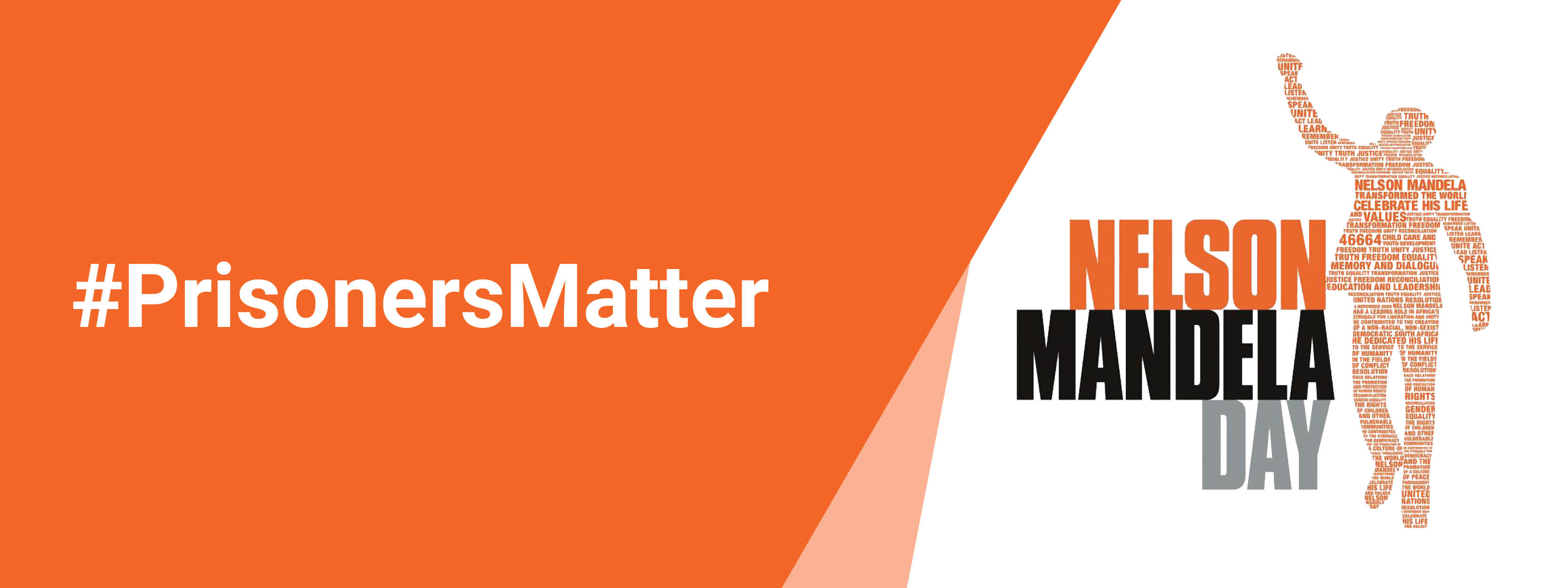
What happens to people in the course of imprisonment affects all of us. On Nelson Mandela Day, which takes place on 18 July each year, join the United Nations Office on Drugs and Crime (UNODC) in sharing why #PrisonersMatter and in calling for the universal practical application of the UN Standard Minimum Rules for the Treatment of Prisoners – the Nelson Mandela Rules.
Across the world, more than 11.5 million people are behind bars. Many belong to the most marginalized segments of society. Many live in overcrowded prisons that suffer from systemic neglect. Many are exposed to prison conditions that contravene basic human needs. Many are awaiting the outcome of their trial.
These people matter.
They matter because their treatment affects us all: our safety, public health, community resources and the social cohesion of our societies. But fundamentally, prisoners matter because they are people.
The UN Standard Minimum Rules for the Treatment of Prisoners – known as the Nelson Mandela Rules – provide the blueprint for prison management in the 21st century: prison management that preserves the safety, rights and human dignity of all.
Join the call for the universal, practical application of the Nelson Mandela Rules – because prisoners matter.

These are just a few highlights of the 2024 campaign, which engaged prison services, international and non-governmental organizations and UN entities worldwide.
UNODC field teams, prison authorities and partner organizations took part in the #PrisonersMatter campaign on Nelson Mandela Day 2023. Here are just a few highlights:

Abena’s four year-old son sits in her lap, and calmness washes over him. As she holds on tightly, he falls asleep. Just a few months ago, this wouldn’t have been possible. That she can is in part due to the advocacy of Chief Superintendent Mary Asante Sarfo, who is one of a small but growing number of female senior figures in Ghana’s prison service. Read Mary's story.

Perfectly foamed milk. A bittersweet tang on the palate. A perfect cappuccino? It’s more than that. This particular cup was carefully prepared by Denny, an inmate in Tangerang prison, Jakarta, who joined a UN-supported training programme aimed at helping prisoners to re-integrate into society after serving time.

When Tharaka started serving his sentence, he had never given much thought to gardening. However, during his sentence he played a significant role in the prison garden, learning skills that can serve him well in Sri Lanka’s evolving food security situation. Read the story.
The Nelson Mandela Rules are the universally-acknowledged benchmark for good prison management in the 21st Century. They provide clear benchmarks for prison officials on safety, security and the humane treatment of prisoners. UNODC is the custodian of these rules, working with the Group of Friends of the Nelson Mandela Rules to promote and support their adoption worldwide.
Across the world, there are more than 11.5 million people behind bars – a significant number that continues to grow. The main purposes of imprisonment are to protect society from crime and to prevent reoffending. Prisons do this by ensuring safe, secure and humane custody and by preparing prisoners for their re-entry into society.
Yet prison systems around the globe face fundamental challenges that undermine their ability to fulfil those objectives: overcrowding and poor prison conditions, insufficient resources and capacities, violence and abuse as well as systemic neglect.
What happens in prisons affects all of us. The need for change is urgent. Find out more.